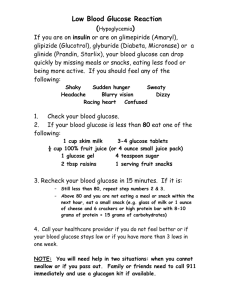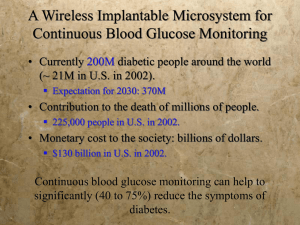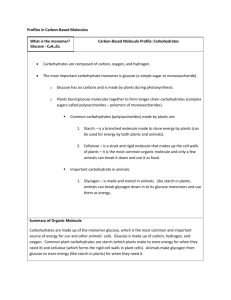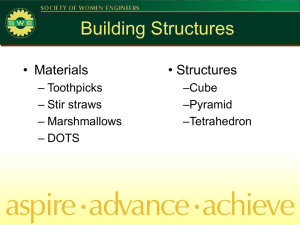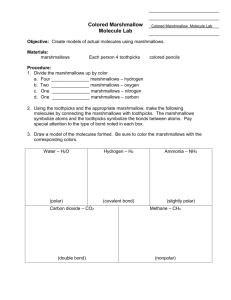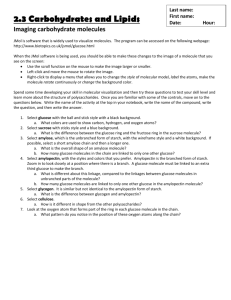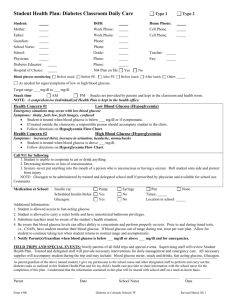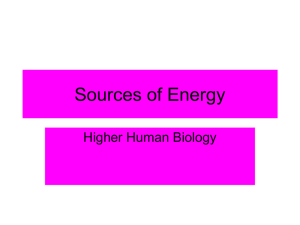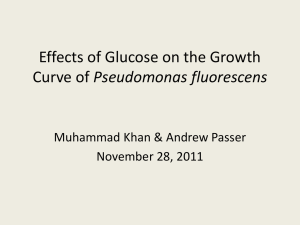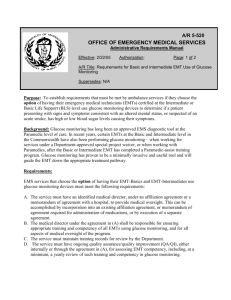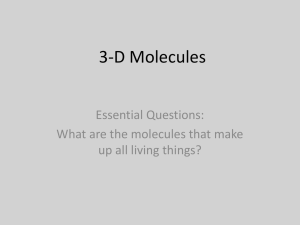Glucose Model
advertisement
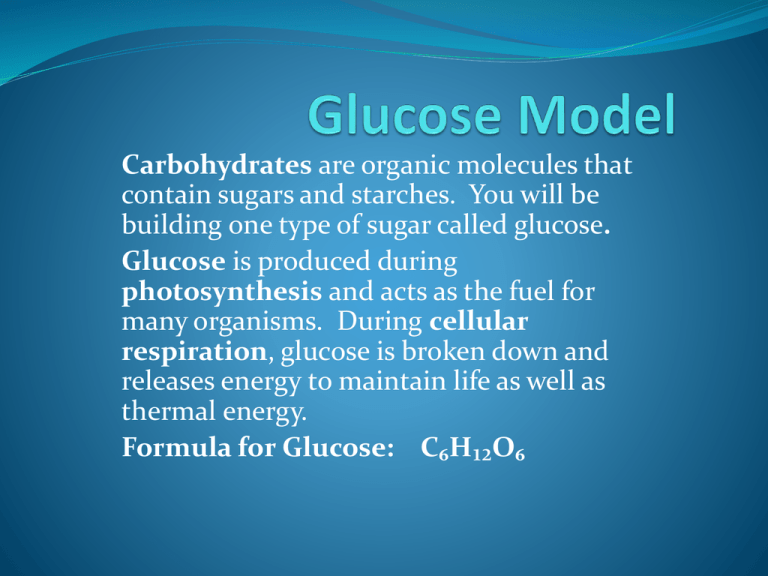
Carbohydrates are organic molecules that contain sugars and starches. You will be building one type of sugar called glucose. Glucose is produced during photosynthesis and acts as the fuel for many organisms. During cellular respiration, glucose is broken down and releases energy to maintain life as well as thermal energy. Formula for Glucose: C₆H₁₂O₆ Check your bag Marshmallows represent individual atoms of three types: Carbon (should have 6) Hydrogen (should have 12) Oxygen (should have 6) Procedure 1) 2) 3) 4) 5) 6) 7) 8) Trim the glucose model worksheet around the dark line. In your bag, you have three colors of marshmallows. One color has 6, another has 12, and another has 6 of each. Count to make sure your bag is complete. Choose one of the colors (with 6) to be Carbon and the other color (with 6) to be Oxygen. Place 5 Carbons with one Oxygen in the center of your model to make the central ring as shown on the diagram. Add the sixth Carbon to the Carbon marshmallow that is next to the Oxygen atom. Add the Oxygen atoms around the Carbon on the ring. Add the Hydrogen (with 12) around each of the other marshmallows until you have used all 12. Check the key to see if you have placed your marshmallows correctly. The connecting lines on your model represent chemical bonds. Remember that these are forces, not physical objects that are holding the atoms together. Wait and follow the teacher’s instructions for the next part of this activity. Glucose Model Modeling the Break down of Carbohydrates to Glucose 1. Carefully pick up your model of Glucose. 2. Stand together in a line while touching elbows as if you were all connected. Be careful not to drop your model or marshmallows! 3. As your teacher instructs you, slowly walk back to your seat. 4. You may dispose of your marshmallows properly. 3. Let’s discuss what happened! Conclusion Glue your Glucose Molecule sheet to page 7 in your Notebook. Label the top “Glucose Molecule”.
